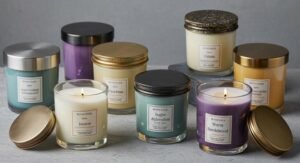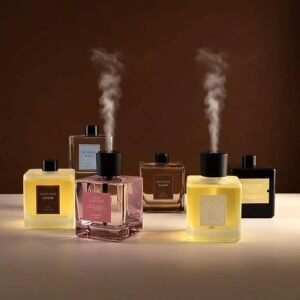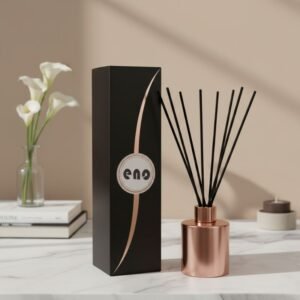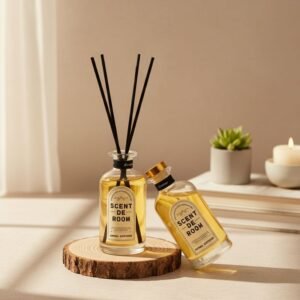Selecting quality candle vendors determines your retail business success or failure in today’s competitive marketplace.
The global candle market is projected to reach $13.38 billion by 2028, driven by consumer demand for premium, eco-friendly options. Successful retailers understand that vendor partnerships directly impact product quality, customer satisfaction, and profit margins through reliable sourcing strategies.
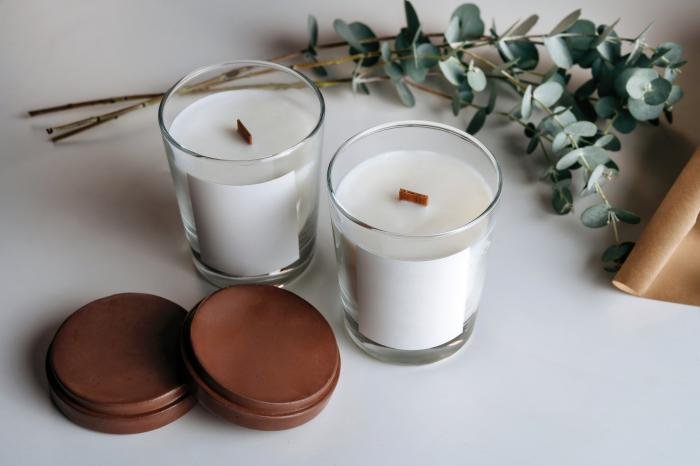
This comprehensive guide reveals proven strategies for evaluating vendor reliability, assessing quality standards, and building profitable long-term partnerships that scale with your business growth.
What Are the Essential Quality Standards Every Candle Vendor Should Meet?
Poor quality candles damage your reputation and cost customer trust. Inconsistent products create headaches for retailers dealing with returns and complaints.
Essential quality standards for candle vendors include safety certifications (EN15493, ASTM F2417), consistent wax formulations, proper wick sizing, fragrance throw testing, and comprehensive documentation systems that ensure every batch meets commercial retail requirements.
Core Safety Certifications and Compliance
Quality candle vendors must maintain rigorous safety certifications. The EN15493 standard covers fire safety requirements, while ASTM F2417 ensures comprehensive candle fire safety specifications. Vendors should provide General Certificate of Conformity (GCC) documentation under 16 CFR Part 1500.17, particularly for lead content compliance. These certifications protect both retailers and end consumers from potential hazards.
Temperature control during production significantly impacts candle quality. Professional vendors maintain detailed batch records including wax types, wick specifications, fragrance percentages, and curing conditions. This documentation ensures product consistency across large orders – critical for retailers maintaining brand standards.
Production Standards and Quality Control Systems
Reliable vendors implement systematic quality control measures covering fragrance consistency, burn performance, and visual appearance. Each batch undergoes fragrance throw testing to ensure scent projection meets specifications. Proper curing periods, typically 1-2 weeks, allow candles to achieve optimal performance before shipping.
| Quality Standard | Testing Method | Acceptable Range |
|---|---|---|
| Fragrance Load | Weight measurement | 6-12% of total wax |
| Burn Time | Controlled burn test | ±10% of specification |
| Scent Throw | Cold/hot throw evaluation | Consistent across batches |
| Wick Performance | Flame height monitoring | 0.5-1 inch flame |
Packaging standards ensure products arrive undamaged and retail-ready. Professional vendors use protective packaging, clear labeling, and maintain consistent branding elements. Return policies should accommodate defective products while delivery flexibility supports varying retailer order cycles. Companies like Loveeno excel in these areas, offering comprehensive quality assurance systems that support both small boutiques and large retail chains.
How Do You Evaluate Production Capacity and Shipping Logistics?
Inadequate vendor vetting leaves retailers stranded with stockouts, delayed shipments, and frustrated customers.
Evaluate production capacity by assessing current output levels, scalability potential, and lead times. Review shipping logistics through delivery speed, packaging quality, and order fulfillment reliability.
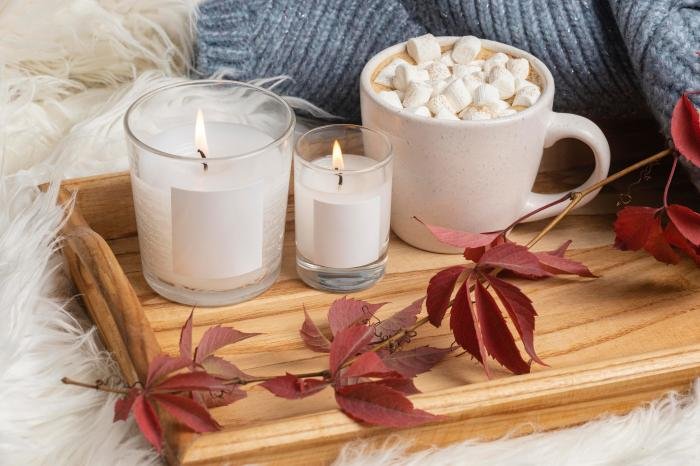
Production Capacity Assessment Framework
Production capacity evaluation centers on three core metrics: current output capabilities, scalability potential, and order flexibility. Small artisan suppliers typically handle 50-100 unit orders with 2-4 week lead times, while large manufacturers require 500-1,000 piece minimums but offer faster turnaround.
Assess whether vendors can scale production during peak seasons without compromising quality. Request detailed production schedules and capacity reports. Loveeno maintains transparent production timelines and can accommodate varying order quantities, making it easier for retailers to plan inventory cycles.
Shipping Logistics and Fulfillment Standards
Shipping logistics encompass delivery speed, packaging protection, and order accuracy rates. Reliable vendors maintain consistent delivery windows and provide tracking information. Evaluate their geographic coverage, shipping partnerships, and return policies.
| Logistics Factor | Small Vendors | Large Manufacturers |
|---|---|---|
| Lead Times | 2-4 weeks | 1-2 weeks |
| Minimum Orders | 50-100 units | 500-1,000 units |
| Shipping Zones | Regional | National/International |
| Packaging Quality | Variable | Standardized |
Consider vendors who offer flexible ordering quantities to match your business growth trajectory. Strong logistics partners provide detailed shipping documentation, damage protection, and responsive customer service for order modifications.
What Vendor Reliability Factors Should Retailers Prioritize?
Choosing unreliable vendors devastates retail operations, leading to stock shortages, customer disappointment, and damaged reputation. Poor vendor selection creates supply chain chaos that retailers can’t afford to ignore.
Prioritize business history, financial stability, customer references, and facility visits when evaluating vendor reliability. These four pillars ensure consistent supply, quality control, and long-term partnership success for retail operations.
Core Financial and Historical Assessment
Financial stability serves as the foundation of vendor reliability. Review three years of financial statements, examining revenue trends, debt-to-equity ratios, and cash flow patterns. A vendor’s business history reveals consistency in operations and their ability to weather market fluctuations. Look for companies with established track records exceeding five years in the industry.
Credit reports and industry reputation provide additional layers of verification. Vendors experiencing frequent ownership changes or legal disputes pose significant risks to supply chain continuity. Request quarterly financial updates during partnerships to monitor ongoing stability.
Reference Verification and Facility Evaluation
Customer references offer invaluable insights into real-world vendor performance. Contact at least three current clients, focusing on delivery reliability, quality consistency, and problem resolution capabilities. Ask specific questions about lead times, order accuracy, and communication responsiveness.
Facility visits provide firsthand assessment of production capabilities, quality control systems, and operational efficiency. Evaluate warehouse organization, equipment maintenance, and staff training levels. Well-managed facilities typically correlate with reliable delivery performance and product quality.
| Reliability Factor | Assessment Method | Key Metrics |
|---|---|---|
| Business History | Company records review | Years in operation, ownership stability |
| Financial Stability | Financial statement analysis | Revenue growth, debt ratios, cash flow |
| Customer References | Client interviews | Delivery performance, quality ratings |
| Facility Visits | On-site inspection | Production capacity, quality systems |
Loveeno’s decade-long industry presence and transparent financial reporting exemplify these reliability standards, providing retailers with the stable partnership foundation they require for consistent candle supply operations.
How Can You Build Long-Term Partnerships with Top Candle Vendor Lists 2025?
Finding reliable candle suppliers feels overwhelming. Countless vendors promise quality, but few deliver consistent results that grow your business.
Building long-term partnerships with top candle vendor lists 2025 requires strategic vendor vetting, clear negotiation tactics, and flexible ordering systems that align with industry trends and your business needs.

Establishing Trust Through Vendor Vetting Framework
Successful vendor relationships start with thorough evaluation. Your vetting process should examine three critical areas: financial stability, production capacity, and quality consistency. Review vendor certifications, customer testimonials, and production timelines. Request samples before committing to large orders. Companies like Loveeno demonstrate reliability through transparent communication and consistent product quality, setting the standard for trustworthy partnerships.
Create a vendor scorecard that tracks performance metrics monthly. Monitor delivery times, product defect rates, and customer service responsiveness. This data-driven approach helps identify which suppliers deserve long-term contracts and which need improvement or replacement.
Negotiating Flexible Terms That Scale With Your Business
Smart negotiation tactics focus on mutual growth rather than just price reduction. Discuss volume discounts, payment terms, and seasonal ordering flexibility. The table below outlines key negotiation points:
| Negotiation Area | Standard Terms | Optimal Terms | Business Impact |
|---|---|---|---|
| Payment Terms | Net 30 | Net 45-60 | Improved cash flow |
| Minimum Orders | Fixed quantities | Flexible minimums | Reduced inventory risk |
| Return Policy | 30-day limited | 60-day full refund | Customer confidence |
| Packaging Options | Standard only | Custom + eco-friendly | Brand differentiation |
Industry trends in 2025 emphasize sustainable packaging and ordering flexibility. Vendors offering eco-friendly materials and smaller batch capabilities position themselves as valuable long-term partners. These partnerships reduce environmental impact while meeting consumer demand for responsible products.
Conclusion
Choosing the right candle vendors transforms your retail business from struggling with inconsistent supply to thriving with reliable partnerships. Quality standards, production capacity evaluation, vendor reliability assessment, and long-term relationship building create the foundation for sustainable retail success. Implement your supplier sourcing checklist systematically, prioritize vendor vetting processes, and negotiate flexible terms that scale with your growth. Start evaluating potential candle vendors today using these proven strategies to secure profitable partnerships that drive your retail success forward.
FAQ
Q1: What factors determine the reliability of candle vendors for retail businesses?
Candle vendor reliability is determined by several key factors including production capacity to handle large orders, shipping logistics efficiency, ordering flexibility for custom requests, secure packaging to prevent damage, and clear return policies. Retailers should also evaluate vendor reputation, quality consistency, and communication responsiveness to ensure dependable supply chain operations.
Q2: How can retailers assess a candle vendor’s production capacity before placing large orders?
Retailers should directly inquire about the vendor’s maximum monthly production output, lead times for custom orders, and their ability to scale during peak seasons. Requesting references from current clients and reviewing their manufacturing facility capabilities can provide insights into whether their production capacity aligns with your business needs and growth projections.
Q3: What shipping logistics considerations are most important when selecting candle vendors?
Key shipping logistics factors include delivery timeframes, shipping costs, carrier reliability, tracking capabilities, and packaging quality. Candle vendors should offer secure packaging to prevent breakage during transit, provide real-time tracking updates, and have contingency plans for shipping delays. Retailers should also verify if vendors offer expedited shipping options for urgent orders.
Q4: How do ordering flexibility options vary among different candle vendors?
Ordering flexibility varies significantly among candle vendors. Some offer custom scent creation, private labeling, minimum order quantity adjustments, and mixed-case ordering. Premium vendors typically provide more customization options including wax type selection, wick customization, and container choices. Retailers should prioritize vendors offering scalable order quantities and customization to match their specific market demands.
Q5: What should retailers look for in a candle vendor’s return policy and quality guarantees?
Retailers should seek vendors with clear return policies covering damaged goods, quality inconsistencies, and shipping errors. Look for vendors offering quality guarantees on scent throw, burn time, and appearance consistency. The best policies include reasonable return timeframes, prepaid return shipping for defective products, and replacement guarantees rather than just credit options to minimize inventory disruptions.
- Shopify’s Guide to Wholesale Candle Suppliers and Vendor Selection
- Candle Vendor Directory and Supplier Comparison Platform
- National Candle Association – Industry Standards and Vendor Guidelines
- Retail Forum Discussion on Candle Vendor Reliability and Experiences
- Small Business Administration Guide to Wholesale Supplier Vetting

